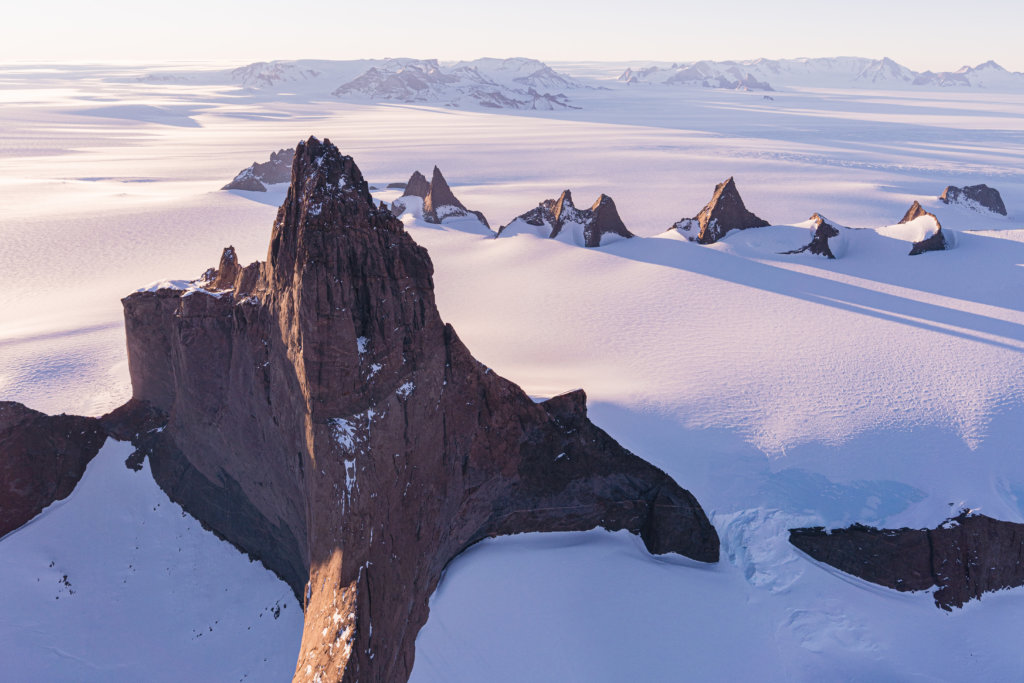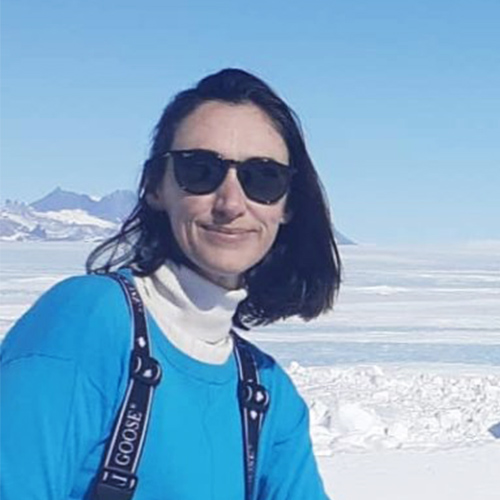Antarctica through the lens of Andrew Ling
Last season saw renowned photographer Andrew Ling journeying to the Seventh Continent with our team. His inaugural visit to Antarctica was a 40-day polar expedition – the ultimate ‘baptism by ice’, if you will…
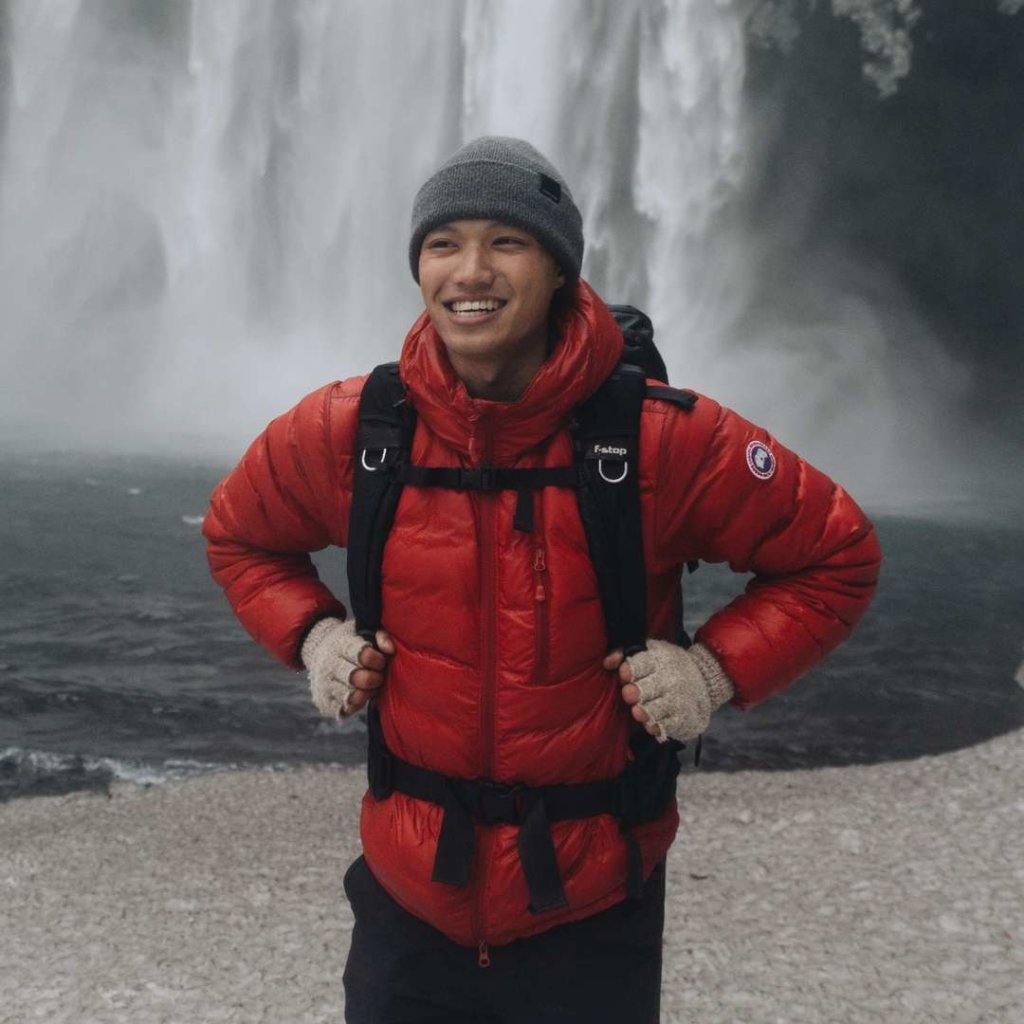
Andrew’s skill lies in capturing the scale and beauty of the natural world, bringing some of the most dramatic regions to life in his evocative style. No stranger to extremes, Andrew has spent extensive time in the wilds of Alaska, Iceland and Patagonia.
In keeping with White Desert’s philosophy that travel can be a force for good, inspiring people to care about the conservation of our planet, Andrew says “When someone travels with White Desert they get to see and experience some of the most special moments we can have as human beings.
It’s good for them, it’s good for the animals, and the environment. It’s good for everyone”.
We sat down with Andrew to discover how the Great White Continent has impacted his life.
What were you feeling during your first 24 hours in Antarctica ?
The moment I stepped off the plane I couldn’t help but to think to myself: “Wow. I’m in Antarctica right now. This is unbelievable. Let’s get to work.” I was beyond excited to create some of the most special work of my career.
What was most unexpected for you?
I was pleasantly surprised how quickly bonds and friendships formed. There’s something about being surrounded by others who share a similar mindset, and all being in one of the most isolated places in the world – working together to survive in such an extreme environment. It’s something special.
Imagine taking everyone that you’ve enjoyed spending time with while traveling. Now take all those people and put them together in Antarctica with you. That’s what it’s like there. The staff at White Desert really made the experience feel complete. I mean quite literally, it wouldn’t be possible without them. Just as an added bonus, they’re great people all around.
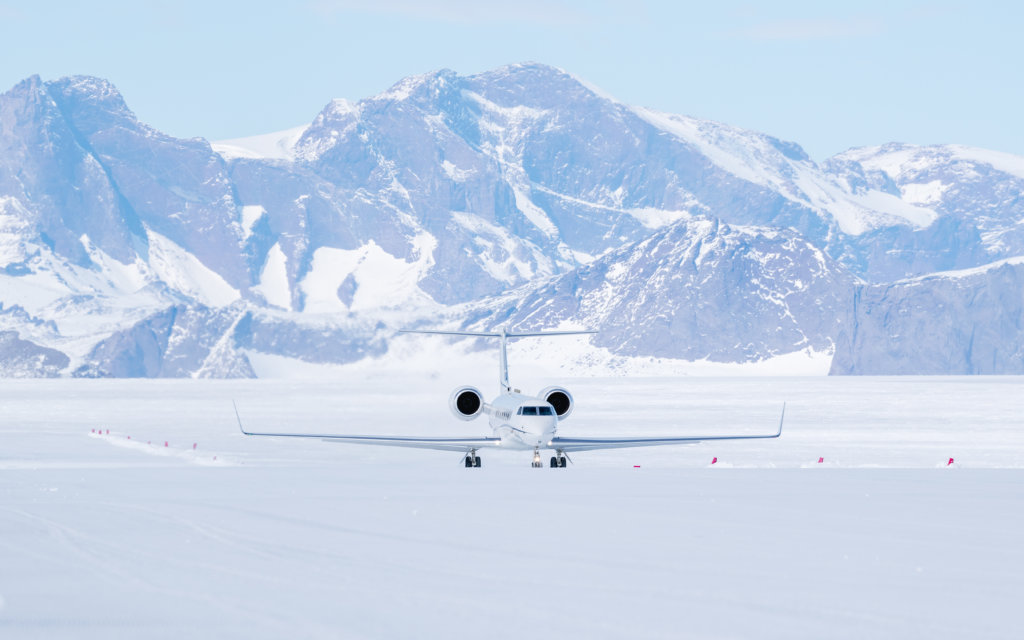
What’s your best memory of the season?
Just having dinner each night with the staff. It’s the world’s most amazing melting pot of people and nationalities in a completely neutral country. There’s nothing like sharing a good meal, with good people, in one of the best places in the world.
Working with White Desert was an amazing experience. Everything was handled from start to finish with professionalism, and class. A true pleasure working together.
What was your favourite activity?
Definitely the ‘flight-seeing’ tour over Ulvetanna – translation: ‘Wolf’s Fang’. The 9,600 foot tall (2,926m), jagged peak that you can see from camp. It’s one of six such stunning peaks in the Drygalski mountain range. Together, they resemble a nearly complete set of fangs.
We flew with the doors open, photographing through the back door of a small DHC-6 Twin Otter – a utility aircraft. It was a good feeling.
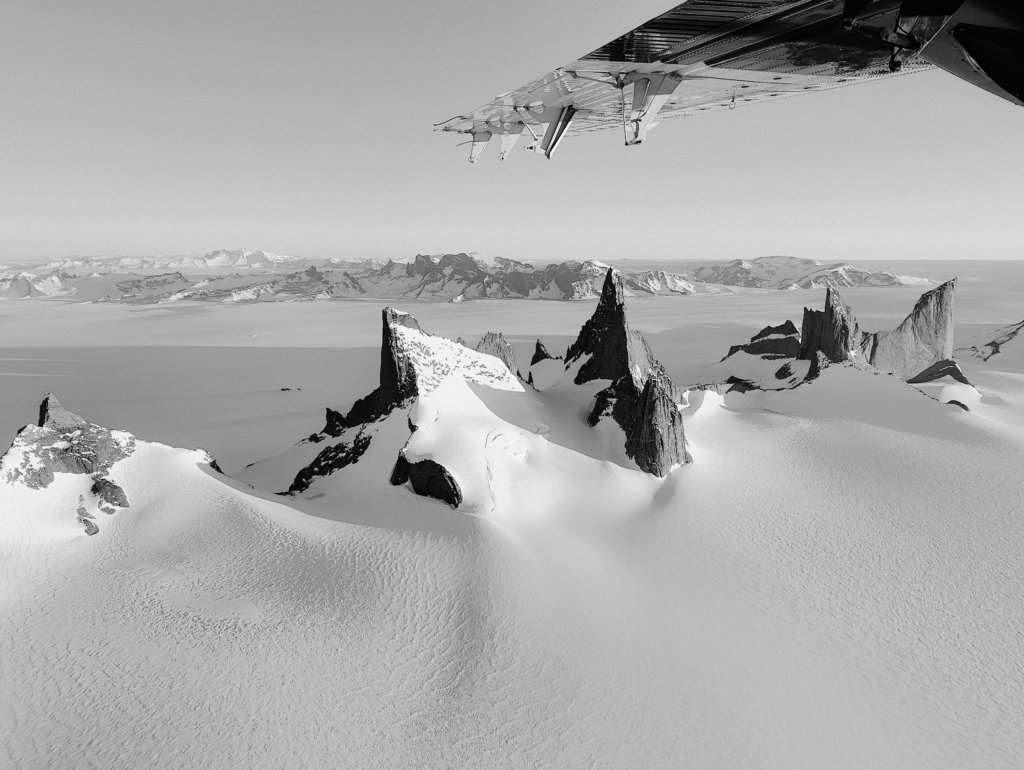
It was my second to last day on ice, and it finally hit me as I thought to myself “Wow, I’m really here. This is something I’ve wanted to do my entire life.
What’s one word to sum up your experience?
Unforgettable.
Please share your experience of seeing the Emperor Penguins?
It’s hard to put into words how special the Emperor Penguin experience was. It was definitely one of my favourite activities. Not to mention the flight back over the ice shelf…spectacular. I’m still processing it all, even months later.
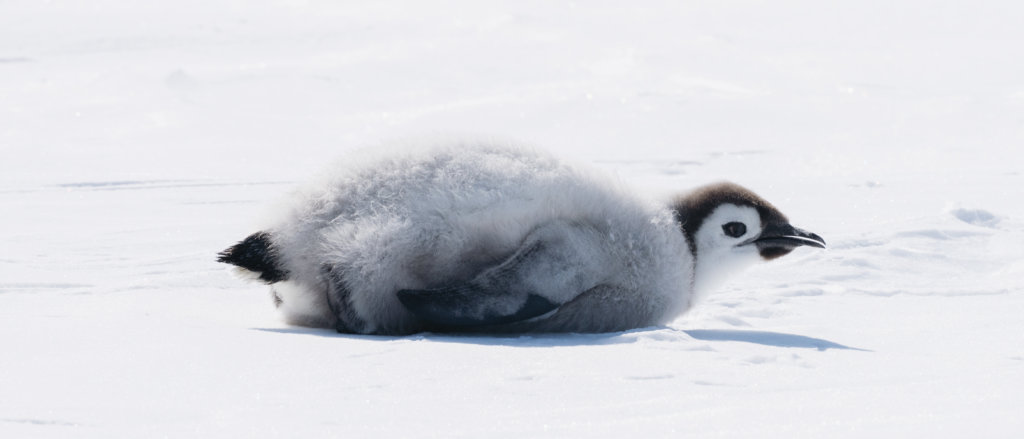
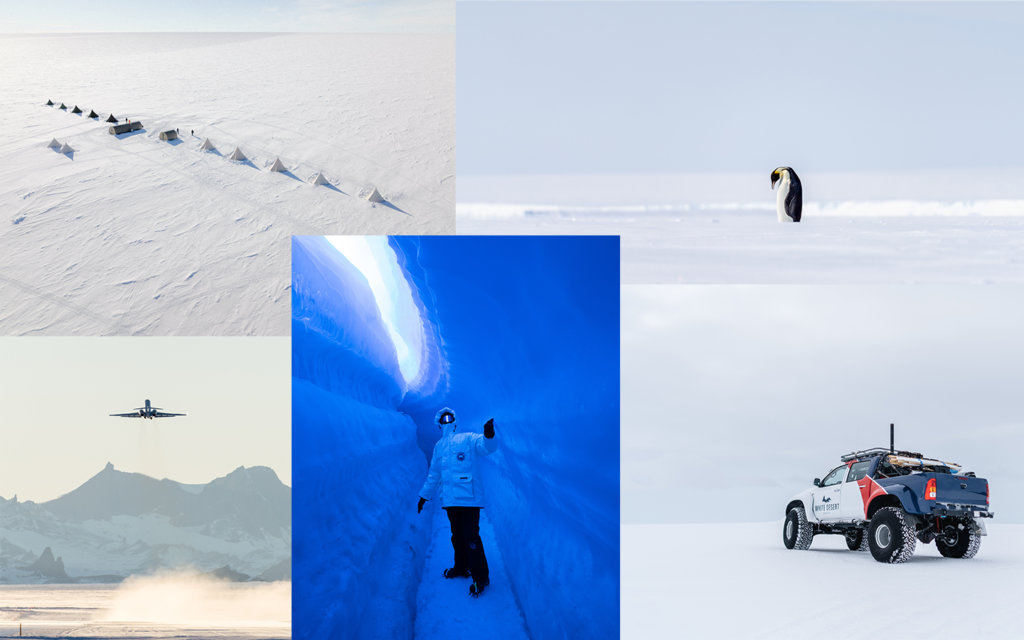
How does visiting the Last Continent impact your view on climate change and environmental issues?
There’s no place I’ve ever seen that showcases the beauty of our planet better than the Last Continent. Antarctica is one of those places that is so beautiful, that it makes you want to protect it.
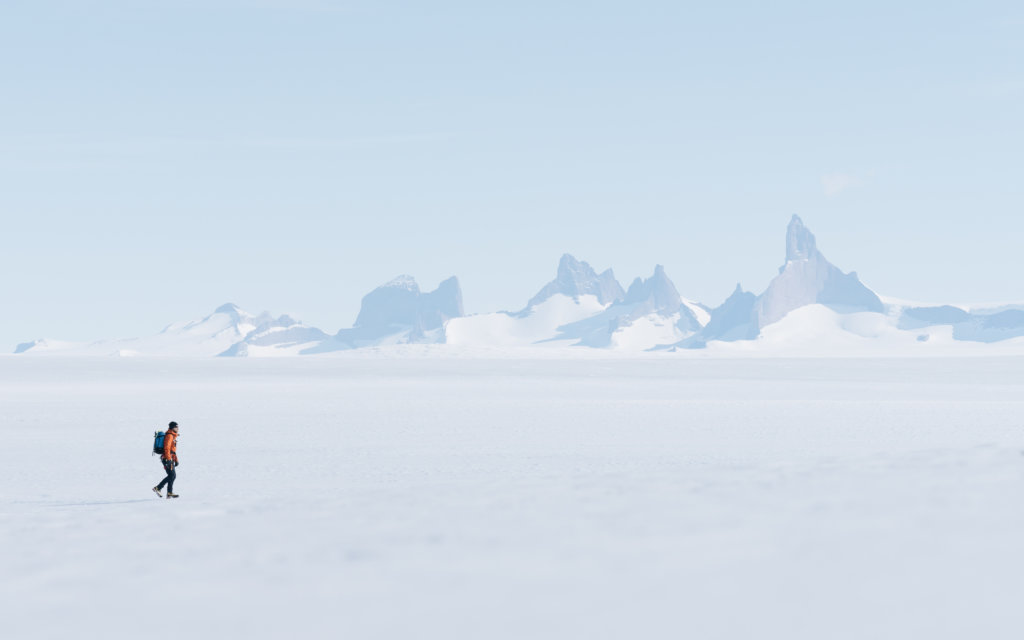
Why should people visit Antarctica if they get the chance?
If people get the chance, they should visit Antarctica because it is truly nature in its wildest, and purest form. Antarctica is the most isolated and pristine place I’ve ever been. It will change the way you see the world and hopefully how you interact with it once you go home.
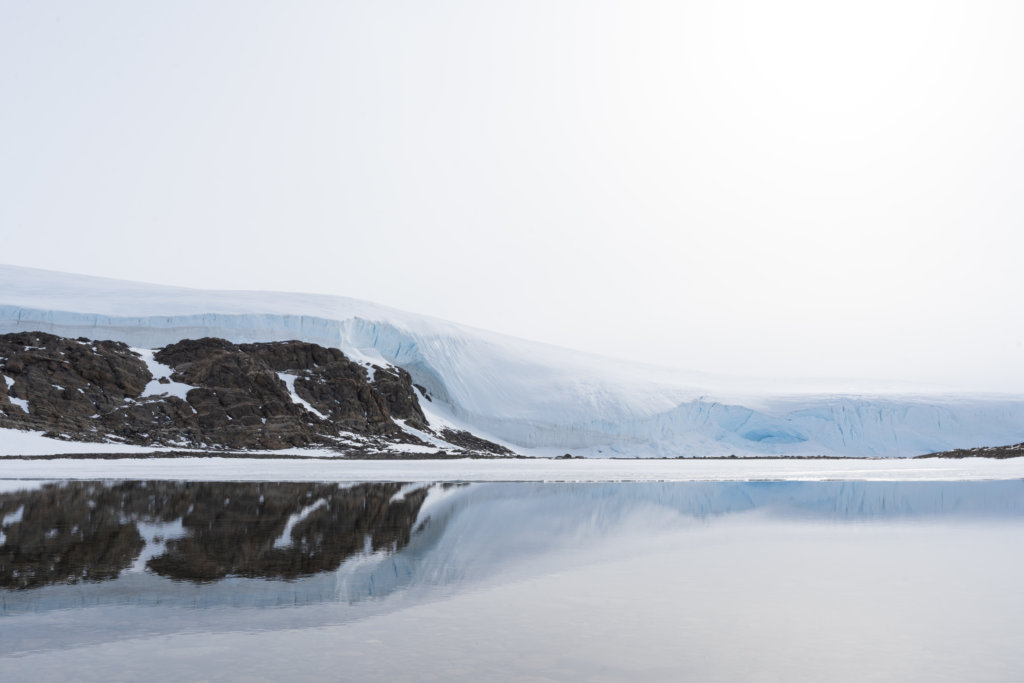
What was the biggest challenge?
The biggest challenge was getting home. To my surprise, I realised that although living in Antarctica for 40 days can be difficult, returning home was even more so. Disturbingly, for the first few weeks it was my own home that I found unfamiliar. Returning to the mundane, everyday tasks, such as having an overwhelming number of choices, hearing a million sounds, seeing green, red, etc. were all new.
The biggest challenge on the ice was definitely dealing with the unpredictability and extremity of the weather. One of the team, who’d worked 16 years on ice, told us it was the most challenging season he had ever seen. Antarctica is the driest, windiest and coldest continent on the planet. You have to be prepared for anything and everything. It is easy to forget the size of the continent.
What did this experience mean for you on a personal level?
On a personal level, this experience meant everything to me. Growing up, I knew I wanted to be an artist – but the world constantly told me no. That it wasn’t possible to make a living doing any kind of art. That it would have to be a hobby. Being able to do what I love, and to do it in Antarctica was something I’ve strived towards, for my entire life. I’ll never take it for granted. I hope this serves as a message to everyone out there to chase their dreams–even when the world tells you no.
A huge thank you to White Desert for trusting me with this assignment. Thanks everyone for reading!
All photos by Andrew.
